The Top 5 Best Books on C++ Programming
Introduction
Designers in the present innovation-driven world find that learning C++ to write computer programs is notable and are embracing it. As a result, demand for C and C++ is constantly growing. Indeed, there’re different languages too which you can learn, the fundamental motivation to learn C is that it is the establishment to go into the world of programming.
You can learn C++ from different sources, including institutions and online courses, but books are still essential, and self-study is superior. You can learn the concepts by reading them in a book and then practising them. Also, books serve as sources of information when you’re stuck. It’s a good thing that there are so many C++ books available, but it can also be confusing. This article lists the top 5 best C++ books that will help you start your career and keep up with your vision. This list lists books that are best suited to both beginner and experienced C++ developers
Book 1: The C++ Programming Language
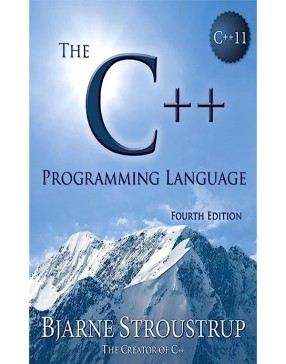
Author: Bjarne Stroustrup
Edition: 4th Edition
A. Overview of the book
This book involves content for both beginners and experts with expertise in C++ language and was composed by the developer of C++ itself for example Bjarne Stroustrup. The fourth edition of the book includes exercises for practising in addition to comprehensive details in full-length format. You can learn the fundamentals of C++, libraries, containers, OOPS, and other topics with the help of this book. The author is a member of the U.S. National Academy of Engineering and has contributed to other books based on C++.
One of the most widely used languages, C++ include object-oriented concepts like polymorphism, data abstractions, encapsulation, and inheritance, and this book is ideal for understanding them. Additionally, it discusses functions dealing with capability over-burdening, which was previously missing in C programming. The language’s creator and developer wrote this book to provide documentation for the language’s ongoing development It has been documented that subsequent editions contain language modifications. Even though it discusses the structure of the language, some of its contents may appear advanced to novice programmers.
B. Topics you will learn from this book
- Basic Fundamental: scope, type, object, storage, fundamentals of computation, etc.
- Modularity is supported by namespaces, exception handling, and source files.
- C++ abstraction, similar to class hierarchies, classes, and formats on the side of a synthesis of classic programming, non-exclusive programming, and object-oriented programming(OOP).
- The Standard Library: strings, algorithms, I/O stream, locales, iterators, containers, numbers, utilities, and other similar concepts
- The basic memory model of C++.
Book 2: The Design and Evolution of C++
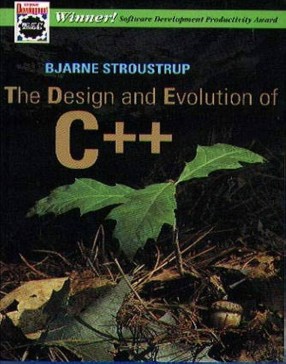
Author: Bjarne Stroustrup
Edition: 1st Edition
A. Overview of the book
Another book written by Bjarne Stroustrup the C++ creator himself. The classic insider’s guide to the C++ programming language’s design and development is provided in this book. Stroustrup provides his amazing insights into the findings that shaped C++ without skipping over important details or getting trapped down in technicalities.
Each C++ developer will get an advantage from Stroustrup’s study of the ‘why’s’ behind the language. The Design and Evolution of C++ are documented in a style that is organized, simple to read, and frequently instructive as well as entertaining. Also, this book provides the best information and discussions of crucial design decisions that will aid comprehension.
B. Topics you will learn from this book
- Bits of knowledge into the reasons, standards, and certifiable limitations which formed C++.
- Defines the design choices made for specific language features.
- Shows the relationship between C++ language highlights and the plan and programming techniques upheld by C++.
- Discusses how the new language features are designed: namespaces, exceptions, and information about runtime type
Book 3: Effective C++
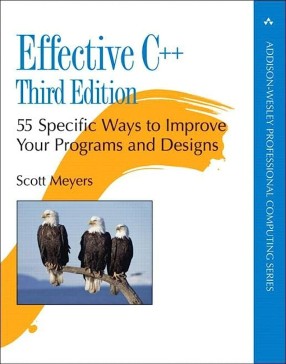
Author Name: Scott Meyers
Edition: 3rd edition
A. Overview of the book
It was documented that this book was the best C++ book for experienced programmers, and it was successful. The first two editions of this book targeted C developers; the third edition, on the other hand, focuses on Java developers. In a style that is both enjoyable and easily understood, it demonstrates more than 50 simple rules and best practices for C++ programmers, along with the reasoning behind each one. Even though the advice in the book is outdated, C++ programmers should still read it because it still applies today.
- Utilizations of the new “TR1” functionality of the standard library, in addition to comparisons to components that are already in the library
- The master idea on the plan of powerful layouts, capabilities, classes, and legacy-ordered progressions.
- Insights into differences between C++ and other languages such as Java, C#, and C make it possible for professionals using those languages to incorporate “the C++ way” of doing things.
Book 4: A Complete Guide to Programming in C++
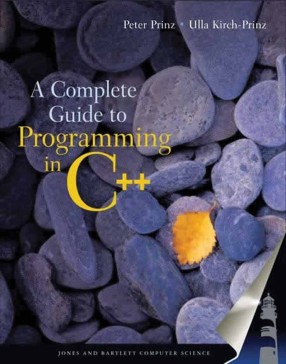
Author: Ulla Kirch-Prinz
Edition: 1st Edition
A. Overview of the book
This C++ book, which has been documented to serve dual markets, is the right choice for you, whether you are a beginner or a professional programmer. It refreshes the lessons and serves as reading material for professionals as well as undergraduate students. The chapters are organized so that the reader can move from fundamental language concepts to advanced programming development. It also goes into great detail about the parts of the C++ language.
The fundamental characteristics of the object-oriented C++ programming language are presented in detail in the first few chapters. The next few chapters focus on system design and the use of streams for information and output. Operators that are required for figuring and determining are demonstrated in the following section of the book. It will direct you to the most proficient met
B. Topics you will learn from this book
- Fundamentals and Functions
- Fundamental Types, Constants, Control Flow and Variables
- Use of Functions and Classes
- Input and Output with Streams
- Operators for Fundamental Types
- Symbolic Constants and Macros
- Converting Arithmetic Types
- The Standard Class string
Book 5: C++ Primer (5th Edition)
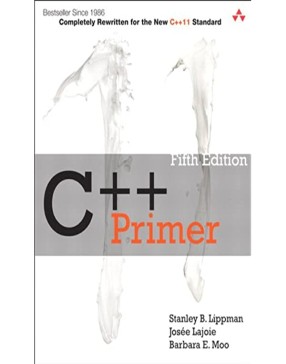
Author: Josee Lajoie and Stanley B. Lippman
Latest Edition: 5th Edition
A. Overview of the book
If you want to learn more about the C++ language or improve your skills, this book is for you. Published in 2012, it was written by Barbara Moo, Josee Lajoie, and Stanley Lippman. If you want to learn C++ from the ground up, this book might be a good choice.
The examples in this book are significantly more advanced, making them applicable to students and working professionals of all levels. This book is a notable instructional exercise for individuals who are new to the ideas of C++, an exemplary conversation of the major ideas and procedures of C++, and a valuable asset for proficient developers, especially the people who are keen on seeing the improvements presented by C++11.
B. Topics you will learn from this book
- How to get familiar with high-level programming and use the new C++11 features and standard library to quickly create powerful programs.
- Make use of extensive cross-references to connect related ideas and insights.
- Learn more from examples of the most recent programming styles and program design methods.
- Exercises and learning aids that are up-to-date highlight important points, help you avoid pitfalls, encourage good habits, and reinforce what you’ve learned.
- Understand what the “rationale behind the rules” is: why C++11 works the way it does
Conclusion
This is about the most reasonable books for C and C++ programming for beginners, junior developers, and specialists. Books are a great way to learn more about C++. Learning any programming language without going through any books is an impossible task. Whether beginning as a hobby or a software engineering understudy, any of the books referenced above would help you in your journey. C and C++ remain highly ranked even with the emergence of new programming languages every few years. They have been demonstrated to be fundamental devices and a method for figuring out other programming dialects.
In conclusion, if you want to pursue a career in programming, learning C is the best choice. The language introduces you to programming ideas like factors, data types, functions, loops, methods, arrays, strings, and many more. You might be encouraged to learn C++ after learning C because the concepts are nearly close, but C++ is an extension of C. Learning C or C++ can get you jobs like system administrator and game developer.
Please let us know in the comment section which books you like to read. Thank You!
Also Read
The Top 5 Best Books on Software Engineering
Edge Computing: Empowering Real-Time Data Processing
5G Technology: Revolutionising Connectivity and Communication
